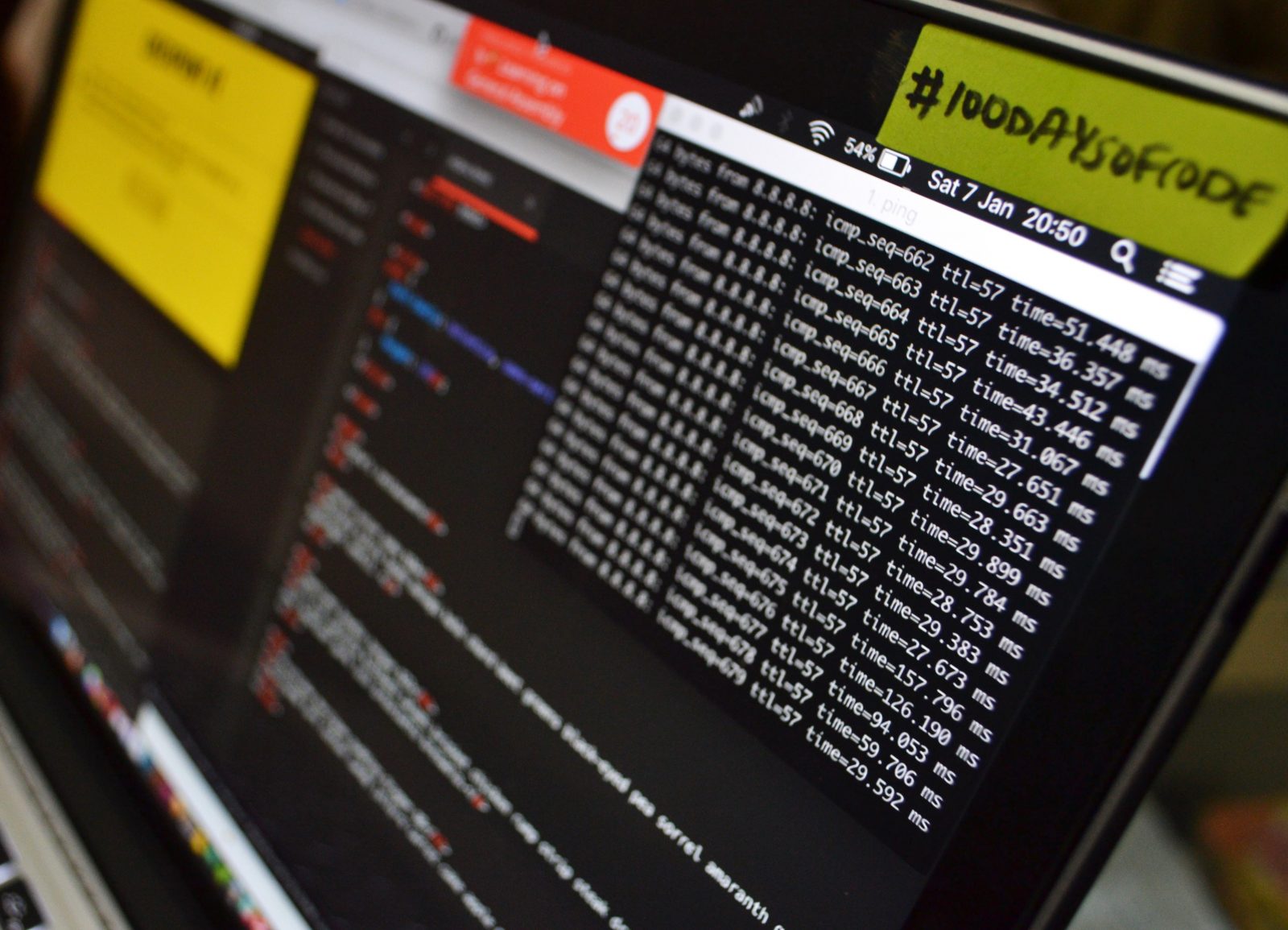HACKING NEWS
Singapore: A top hacking nation
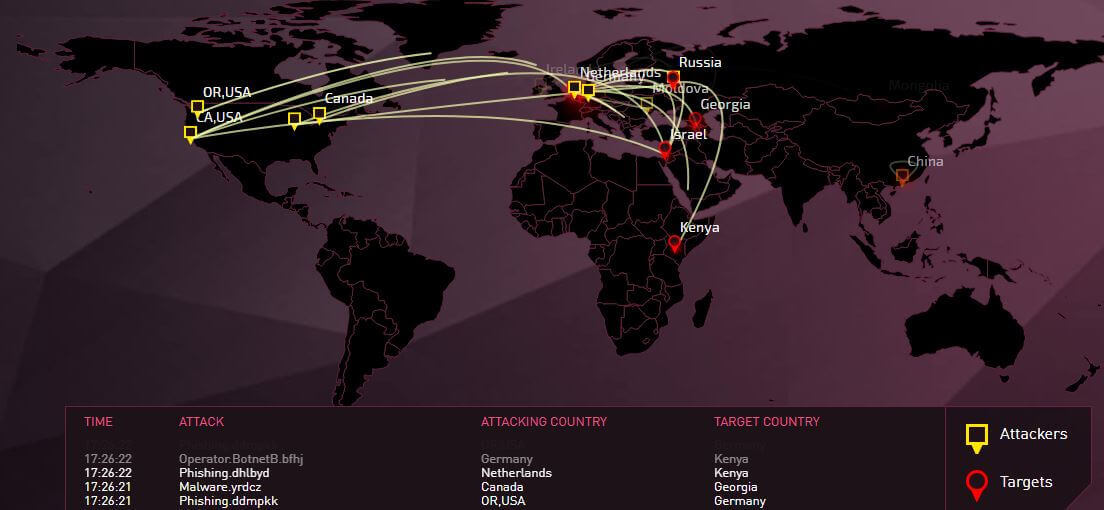
Singapore: A top hacking nation. The city-state has made into the podium as one of the top ten attacking countries, based on data from Threatmap.checkpoint.com (Threatmap).
The website tracks malicious cyber-attacks across the globe and consistently ranked the top aggressors in cyber-attacks. One glance on the list of top ten attacking countries, one will find the great powers of the world pitting each other for glory and honors in the cyberspace.
However, a nation or rather a city-state stood out from the rest of big countries with likes of USA, Russia, UK, Germany and China. Surprise, surprise… the city-state is none other than Singapore.
Singapore ranks 4th in the pecking order
According to Threatmap, the island-nation is placed on the fourth position among the top attacking countries. Singapore has held the same position rather consistently over the past two weeks, which saw almost an average cyber-attacks of 14 million cases over the world daily.
The first place in the hit-list among the Singaporean hackers is reserved for USA and the city-state is likely to inflict its target with tons of malwares. By computation, Singapore’s favorite weapons of choice belongs to access to malicious resources at 61.7%, followed by bot communication at 30.3%, then malicious file transfer at 0.9% and others malwares at 7.1%.
Meanwhile, the “numero uno” or first-place among the top attacking countries is conferred to Russia which infects other machines and global networks mostly with bot communications. Ironically, Russia is also placed consistently as the number one target by hackers all over the world.
The Best Defense is a Good Offense
Despite its small size, Singapore has proven to the best pound-for-pound fighter in term of cyber security, thanks to a long term vision and good executions. As the saying goes, offense is the best defense, Singapore has threw its weight against bigger opponents by taking the first initiative.
For instance, the country first launched a cybersecurity master plan back in 2005. A decade later, the nation established a specialized bureau named Cyber Security Agency of Singapore to shore up its cybersecurity defense and capability.
Just last year, Singapore declared its ambition in becoming a Smart Nation and the first priority drawn out for this master plan depends on the creation of a safer cyberspace in protecting key installations and services.
“Singapore aspires to be a Smart Nation. But to be a Smart Nation, we must also be a safe, cyber nation,” said Lee Hsien Loong, the Prime Minister of Singapore.
“We must get cybersecurity right, to capture the benefits of a more connected world.” the prime minister added.

UN rates Singapore “Numero Uno” in cybersecurity strategy
Having a strategic plan is half the battle, the key for success will lie solely on executions and more executions. Thus, the city-state’s showing on the field of cyber-security did not goes unnoticed and was recently ranked number one by the United Nations (UN) by possessing a better overall cyber-security approach.
The ranking survey was conducted by UN International Telecommunication Union (ITU) which rates countries’ cyber-security readiness over facets such as legal, technical and organizational institutions, educational and research capabilities and cooperation in information-sharing networks.
In achieving another “first”, the city-state’s accolade has surpassed US and other wealthy, developed countries like Australia, Canada, France, Malaysia and so on. In the list, US was ranked at second place, while big nations like Russia was placed at 11th, Germany at 24th, followed by India at 25th and finally China at 34th.
Verdict
Perhaps other wealthier nations have yet to create the awareness of cyber-security and thus did not channel much resources toward the sector. Singapore has uniquely seized this advantage under the noses of much powerful countries and played to its strength.
In fact, the city-state’s cyber strategy resembled the US military campaign in Iraq, namely “Clear, Hold and Build.” First, clear all existing known threats, then hold the ground with the right trainings of personnel plus hardware and finally build up a business community there. So are you game enough to join this grand campaign of cyber-security?
HACKING NEWS
The APT attacks hitting East Asia

The APT attacks hitting East Asia
East Asia have been targeted by a stream of cyber-attacks carried about by an advanced persistant threat (APT) group. The group goes by several names such as Tick, Brzone Butler and Redbaldknight.
The APT group’s main targets are South Korea and Japan. This current wave of Datper malware attacks is written in Delphi and is capable of executing shell commands to gain information from the infected machine, such as hostnames and drive information.
Security researchers from Cisco Talos have stated It is not yet known how the attacks are being conducted since command and control (C2) servers in question are not active. However, they say it’s possible the malware is being delivered using web-based attacks such as drive-by downloads, or by watering hole attack. Watering hole attacks is a security exploit in which the attacker seeks to compromise a specific group of end users by infecting websites that members of the group are known to visit.
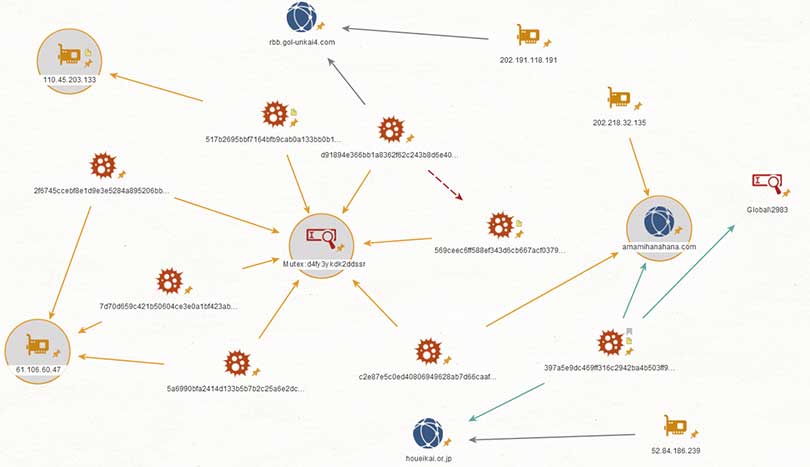
Could this signal the re-emergence of Comment Crew
A fresh wave of APT cyber-attacks has hit South Korea, but also US and Canada, causing some to believe this could spell the re-emergence of Chinese government backed hacking group Comment Crew. Security company McAfee claimed they have discovered a new hacking campaign that focuses on cyberespionage and data reconnaissance.
Comment Crew or otherwise known as Shanghai Group or APT1 is thought to be responsible for the majority of China’s cyber-attacks since 2006. In 2013 they were linked to the successful hacks of over 100 US companies, but vanished soon after the exposure, along with hundreds of terabytes of data. The Chinese government maintains that they do not sponsor hacking and claim to be a victim to hacking campaigns themselves.
McAfee has found malware that reuses some of the code that was uses in a campaign called Seasalt that was introduced by APT1 around 2010. The reason this is interesting is because this code was never released publicly, lending authority to McAffee’s claims.
A recent campaign, named Operation Oceansalt has been linked to Comment crew. Operation Onceansalt started in May this year and was seen to be targeting Korean speaker with a data reconnaissance implant. Four more waves have since been detected, aimed against companies in South Korea, the United States and Canada.
The Oceansalt implant gives attackers full control of any system or network it is connected to, however, is mainly used for espionage activity. McAffee acknowledged that the implant allows for information to be sent to a control server and commands can also be executed on infected machines, however the full extent of its purpose is not known.
The waves of attacks
The first wave of attacks happened when a South Korean website was compromised, allowing for a spear-phishing campaign to take place. This was done through Microsoft excel email attachments.
For the first two waves of the attack the targets were South Korean public infrastructure officials. The third round of malware documents was distributed from another compromised South Korean website, and the content related to the financials of the Inter-Korean Cooperation Fund.
In the fourth wave involved the targeting of investment, healthcare, banking and agriculture industries in the US and Canada. There are few details around the extent or damage of this wave.
The fifth wave primarily targeted South Korea and the United States using Oceansalt implant.
Although the full motive of the attack is unclear, there is speculation that it could be financial, or a small part of a much larger attack.
BREAKING NEWS
Ad Clicker Disguised as a Google Photos App has been Hosted on Microsoft Store.
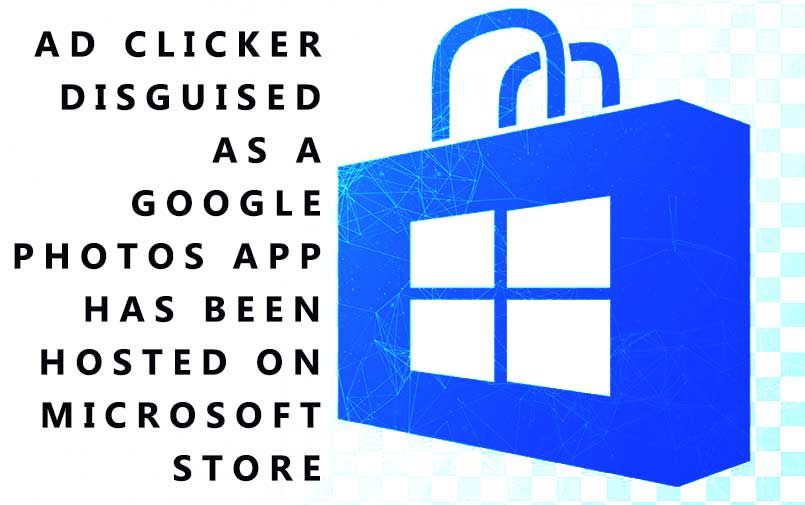
Ad Clicker Disguised as a Google Photos App has been Hosted on Microsoft Store.
A malicious app called “Album by Google Photos” was found to be hosted on the Microsoft store. The app was pretending to be part of Google Photos, but was in fact an ad clicker that generates hidden adverts within the Windows 10 Operating System.
The ad clicker app seemed credible to users because of its name, and also the fact it claimed to be created by Google LLC, Google’s actual Microsoft store account is Google Inc, but it looks unsuspecting to users. Microsoft came under some criticism for not realising the app was actually malicious software since the user reviews did highlight that the app was fake, with plenty of 1* reviews. One review states “ My paid Anti-malware solution detected several attempts to download malware by this app. Watch out”. The App was first released on the Microsoft store in May.
What did the application do?
The “Album by Google Photos” app is a Progressive Web Application (PWA), which acts as the front end for Google Photos and includes a legitimate login screen. Hidden in the app bundle is also an ad clicker which runs in the background and generates income for the app developers.
The app connects to ad URLS, and the ads were very similar to what users would see from typical adware, including tech support scams, random chrome extensions, fake flash and java installs and general low-quality sites.
Microsoft haven’t commented how this app managed to pass the Microsoft review process before ending up on the store. This is somewhat concerning since it could mean other malicious apps of a similar nature have flown under the radar and are still infecting user’s computers. We are waiting for Microsoft to comment on the issue.
HACKING NEWS
How to guide: Check if your Facebook Account has been hacked?

How to guide: Check if your Facebook Account has been hacked?
At the end of September, it was revealed that a Facebook security flaw allowed the access tokens of over 50 Million accounts to be stolen. Access tokens allow users to stay signed in on devices, rather than signing in every time they interact with a Facebook app. On Friday 12 October, after weeks of investigation, Facebook reported that the actual number of accounts affected was 30 million, not 50.
The investigation into how this was made possible, and the extent of the data stolen is still ongoing, but Facebook have said there is no need for users to log out or change their password. Facebook forced 90 million users to log out when the breach was discovered.
Users can use this page to check if they were one of the accounts affected in the incident, as well as read any recent findings from the investigation. When you visit page, if you are not one of the affected users it will tell you this in a statement towards the bottom of the page, and there is no further action required from you other than remaining security conscious when it comes to passwords and such. You will also see a message saying your account hasn’t been compromised if you are one of the one million users to who their tokens stolen but information remained safe.
If you fall into the other 29 million users camp, then you will see one of two messages, depending on the level of your information that was stolen. Fifteen million users had their name, email addresses and phone numbers compromised by hackers. While this is serious enough itself, the other 14 million have a more serious data breach problem.
The other 14 million have had the above information stolen, as well as their username, date of birth, devices you use, gender, language settings and possibly more data such as religious and political views. It’s also possible that they accessed your 10 most recent locations and 15 most recent searches, giving a detailed window into your online presence.
There is currently no evidence that hackers used the vulnerability to attack third-party apps and services to gather more information, which was technically possible. Facebook also continues to report that no passwords of credit card information has been compromised. We are yet to see the full fallout from the breach, but there is also evidence that Facebook logins are being sold on the dark web.
While that data is now out there in the hands of attackers, Facebook has used their support page to offer some advice on avoiding phishing schemes. This is a good move from Facebook, but it doesn’t make up for the grievous level of the data breach and the users it has left vulnerable to tailored phishing attacks now their data is out there.
Photo by Glen Carrie on Unsplash
-

 GAME REVIEW6 years ago
GAME REVIEW6 years agoTop Hacking Simulator Games Every Aspiring Hacker Should Play: Part 1
-

 DEALS6 years ago
DEALS6 years agoGreat Ethical Hacking Courses for Beginners
-

 BREAKING NEWS6 years ago
BREAKING NEWS6 years agoUS Online Retail Company suffered a data breach affecting 6.5 million customers
-

 HACKING NEWS6 years ago
HACKING NEWS6 years agoThe APT attacks hitting East Asia
-
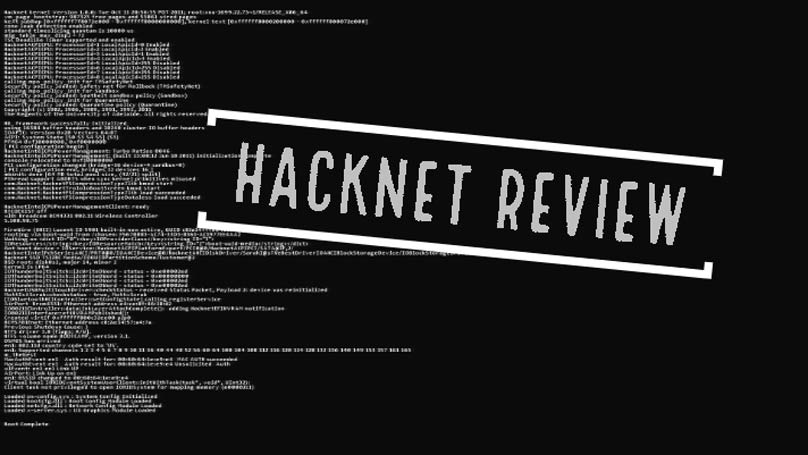
 GAME REVIEW6 years ago
GAME REVIEW6 years agoHacknet Review
-

 DEALS6 years ago
DEALS6 years agoMusic, Voice and Sound interface kits: What you need to know
-
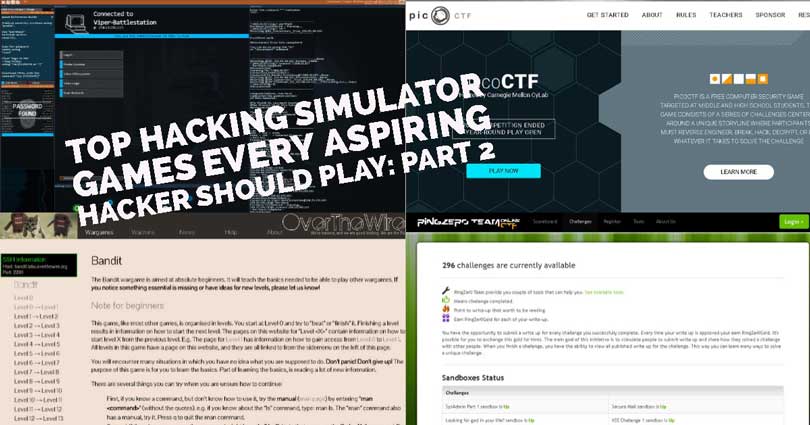
 GAME REVIEW6 years ago
GAME REVIEW6 years agoTop Hacking Simulator Games Every Aspiring Hacker Should Play: Part 2
-

 HOW TO6 years ago
HOW TO6 years agoHow To Become an Ethical Hacker – Beginners Guide






